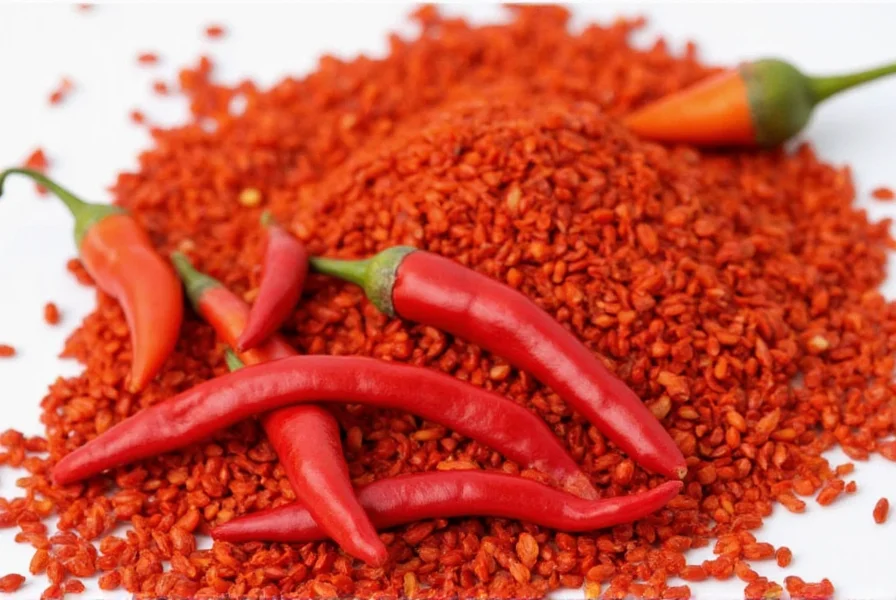Cayenne pepper, known for its vibrant heat and potential health benefits, has become increasingly popular in both culinary and supplement forms. While many people enjoy its metabolism-boosting properties and pain-relieving capsaicin content, understanding the potential adverse reactions is crucial for safe consumption. This comprehensive guide examines the scientifically documented side effects of cayenne pepper across different consumption methods and populations.
Common Side Effects of Cayenne Pepper
Most cayenne pepper side effects occur with excessive consumption or concentrated supplement forms rather than normal culinary use. The active compound capsaicin, while beneficial in controlled amounts, triggers these reactions by stimulating nerve endings.
| Side Effect Category | Specific Symptoms | Typical Trigger |
|---|---|---|
| Digestive Issues | Heartburn, stomach pain, diarrhea, nausea | Consuming >1g of cayenne or supplements on empty stomach |
| Skin Reactions | Burning sensation, redness, irritation | Topical application without proper dilution |
| Respiratory Effects | Nasal congestion, coughing, temporary breathing difficulty | Inhaling cayenne powder or aerosolized forms |
These mild cayenne pepper side effects on stomach and skin typically resolve within hours without intervention. The intensity often correlates with individual tolerance and dosage. Many people develop increased tolerance with regular, moderate consumption—a process called desensitization.
Serious Reactions and Medical Concerns
While rare, certain populations may experience more severe reactions requiring medical attention. Understanding cayenne pepper interactions with medications is particularly important for those managing chronic conditions.
Allergic Reactions
True cayenne pepper allergy symptoms include hives, facial swelling, difficulty breathing, and anaphylaxis in extreme cases. These reactions typically occur within minutes of exposure and require immediate medical treatment. Cross-reactivity may occur in people allergic to other nightshade plants like tomatoes or eggplants.
Medication Interactions
Cayenne pepper can significantly interact with several common medications:
- Blood thinners: May increase bleeding risk when combined with warfarin or aspirin
- Antihypertensive drugs: Could cause dangerously low blood pressure
- Diabetes medications: May enhance blood sugar-lowering effects
- NSAIDs: Increased risk of stomach irritation when combined with ibuprofen
Individuals taking prescription medications should consult their healthcare provider before using cayenne supplements—this is especially important for those wondering is cayenne pepper bad for your heart when managing cardiovascular conditions.

Special Population Considerations
Certain groups should exercise particular caution with cayenne pepper consumption:
Pregnant and Breastfeeding Women
While culinary amounts are generally considered safe, high-dose supplements aren't recommended during pregnancy due to theoretical concerns about uterine stimulation. Limited research exists on cayenne pepper side effects for high blood pressure during pregnancy, so medical consultation is advised.
Individuals with Gastrointestinal Conditions
People with irritable bowel syndrome (IBS), Crohn's disease, ulcerative colitis, or acid reflux should monitor their tolerance carefully. Cayenne may exacerbate symptoms in sensitive individuals, though some studies suggest potential benefits for certain digestive conditions at lower doses.
Diabetes Management
While cayenne may help regulate blood sugar, those with diabetes must monitor levels closely when introducing it, as the combination with diabetes medications could cause hypoglycemia. Understanding how much cayenne pepper is safe to consume becomes critical for this population.
Safe Consumption Guidelines
To minimize potential adverse effects while enjoying cayenne's benefits:
- Start with small culinary amounts (1/8 to 1/4 teaspoon) before increasing
- Take supplements with food to reduce stomach irritation
- Wear gloves when handling fresh peppers or concentrated extracts
- Wash hands thoroughly after contact to avoid transferring capsaicin to sensitive areas
- For topical applications, always dilute in carrier oil (1 part cayenne to 10 parts oil)
The generally accepted safe daily intake for adults is up to 1,200 mg of capsaicin (approximately 1-2 grams of cayenne powder), though individual tolerance varies significantly. Long term effects of cayenne pepper consumption at moderate culinary levels appear minimal based on current research.

When to Seek Medical Attention
While most cayenne pepper side effects are temporary and mild, certain symptoms warrant immediate medical evaluation:
- Persistent vomiting or severe abdominal pain lasting more than 24 hours
- Signs of allergic reaction (hives, swelling, breathing difficulties)
- Uncontrolled bleeding or bruising, especially when taking blood thinners
- Severe skin reactions from topical application that don't improve with washing
- Dizziness or fainting after consumption
For accidental eye exposure, flush immediately with cool water for 15 minutes and seek medical advice if irritation persists. Never use oil to remove capsaicin from eyes, as this can worsen the reaction.
Conclusion
Cayenne pepper offers potential health benefits when used appropriately, but understanding its side effect profile is essential for safe consumption. Most adverse reactions are mild and dose-dependent, resolving without intervention. However, individuals with specific health conditions or those taking certain medications should exercise caution and consult healthcare providers before using concentrated forms. By starting with small amounts, monitoring personal tolerance, and being aware of potential interactions, most people can safely enjoy cayenne pepper's distinctive flavor and potential health properties.
Frequently Asked Questions
Can cayenne pepper cause stomach ulcers?
Current research suggests cayenne pepper doesn't cause ulcers but may irritate existing ones. In fact, some studies indicate capsaicin might help protect the stomach lining at moderate doses. However, people with active ulcers often experience increased discomfort from spicy foods including cayenne.
How long do cayenne pepper side effects typically last?
Most mild side effects like heartburn or skin irritation resolve within 2-6 hours. Digestive symptoms usually subside within 24 hours. Topical burning sensations typically diminish within 30-60 minutes with proper washing. Severe reactions require medical attention and may last longer without treatment.
Is it safe to take cayenne pepper every day?
Yes, culinary amounts (up to 1 gram daily) are generally safe for most people. However, daily supplement use should be discussed with a healthcare provider, especially at higher doses. Long term effects of cayenne pepper consumption at moderate food levels appear minimal based on current evidence.
Can cayenne pepper affect blood pressure?
Cayenne may cause temporary blood pressure changes. Initial consumption can slightly increase blood pressure, while regular moderate use might support healthy circulation. People with hypertension should monitor their response and consult their doctor, especially if taking blood pressure medications where interactions could occur.
What should I do if cayenne pepper gets in my eyes?
Immediately flush eyes with cool running water for 15 minutes while holding eyelids open. Do not rub eyes. Avoid using oil or milk, as these can trap capsaicin. If irritation persists after flushing, seek medical attention. Prevention is best—always wear gloves when handling fresh peppers or concentrated extracts.











 浙公网安备
33010002000092号
浙公网安备
33010002000092号 浙B2-20120091-4
浙B2-20120091-4